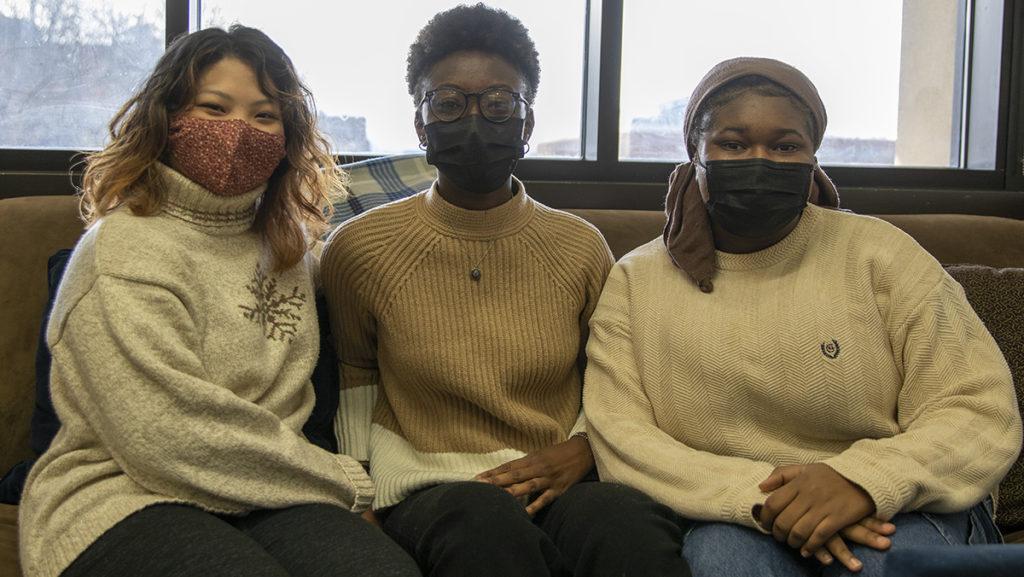As a peer educator for The Center for Inclusion, Diversity, Equity, and Social Change (IDEAS), Ithaca College junior Makiyah Adams and her coworkers use intimate workshops focusing on social justice and inclusion work to facilitate conversations between the college’s students.
The Center for IDEAS is currently employing seven IDEAS peer educators (IPEs). For Spring 2022, the IPEs are holding six different workshops that cover topics on social inequalities: Intersectionality, Unpacking Fatphobia, Imposter Syndrome, Health Literacy Barriers to POC, Pleasure Activism and Knowledge to Action.
Adams said the workshops are intimate and the number of people who attend are varied, usually with seven to 15 attendees.
Adams said it is necessary to have spaces that educate the campus community and empower marginalized students. The organization allows for students to teach one another about how and why they perceive people differently when it comes to race, religion, gender and sexuality.
“If we have dedicated spaces for people to work through these ideas and to ask questions … I feel like we can do some work in actually unpacking those things,” Adams said.
This semester, Adams created a workshop called “Unpacking Fatphobia,” where she discusses with attendees what fatphobia is and why it gets overlooked. IPEs are able to create and present their own workshops on topics they are passionate about after getting feedback from their supervisors.
A 2013 study found that fatphobia — bias or discriminatory behaviors targeted at plus-sized individuals — is common among university students and women are more fatphobic than men. Female college students are also facing more weight-based discrimination than men, according to a California State University study from 2017.
Adams said she found inspiration for her topic through podcasts like the Maintenance Phase, which decodes the culture surrounding wellness and weight loss, and her coworkers.
“The members of the Center for IDEAS are actually really passionate about this topic,” Adams said. “Geselle Dominguez, who is the program coordinator and my direct supervisor, is someone who’s been really helpful in providing inspiration and guidance on where to take this topic. And also, Omega Hollies, who is the [associate] director for the Center [for] IDEAS, has also been someone that has given me great guidance and wisdom.”
Adams has been working as a peer educator since Fall 2020. She said she hoped this job would not only help her become better at presenting information on complex topics like diversity and inclusion to others but also give her an opportunity to help the college’s community.
IPEs work alongside professional staff to help develop programs and events and co-facilitate conversations around identity and social change.
“This is a space for growth,” Adams said. “I’m certainly not the student I was when I applied. I didn’t know the things I know now. And I wasn’t good at things the way I am now.”
Junior Nijha Young started last semester as a peer educator and is currently co-facilitating her own workshop, “Imposter Syndrome”: a phenomenon that manifests when people feel like frauds even if they are actually capable and well-qualified, according to a 2019 study. The study found that 20% of college students suffered from very strong feelings of imposterism.
“We [college students] tend to underestimate our abilities, which is unfortunate, because then we don’t get to try all these new things,” Young said. “We end up stifling our own dreams, our own futures because we don’t feel good enough for them.”
Young said her time working as a peer educator has helped her become more acquainted with the idea of social identities and social issues. Last semester, Young was able to co-facilitate workshops on microaggressions, implicit bias and allyship.
“I think attending the workshops is a chance to interact with different topics that influence … who we are on campus and who we are in… the greater scheme of things, like in life and around the world,” Young said.
Junior Kristin Ho has been working as a peer educator since the beginning of the pandemic, and is presenting a workshop they created called “Health Literacy Barriers to POC” this semester.
“We do a lot of healthcare access conversations in our classes,” Ho said. “And we talk a lot about discrimination and how bias can impact POC, participating in healthcare and getting access. And so one large factor of that is health literacy.”
In 2015, the U.S. Department of Health and Human Services found multiple health inequalities for people of color in the United States like: lower life expectancy, higher blood pressure, lower rates of influenza vaccine and a strain on mental health due to racism. These findings can be attested to people unable to get medical care.
Ho, an occupational science and therapy major, was inspired by their coursework to create the workshop.
A study conducted by Health Services Research found that there was a 67% higher chance for there to be a primary care physician shortage in African American zip codes.
Ho said one of their favorite parts about the job is the atmosphere they work in and the people they are able to work with.
“It’s a diverse workplace,” Ho said. “So you really get to meet people of different cultures, of different backgrounds and opinions. And you really get close and get to know each other.”








